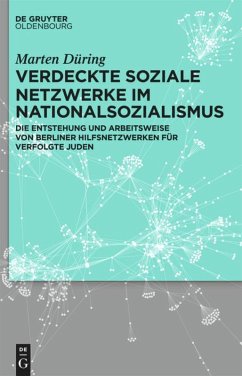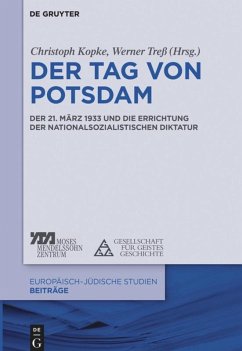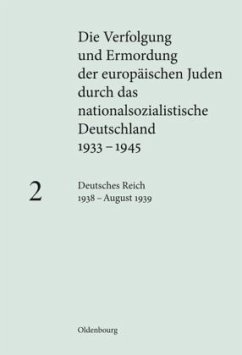Nicht lieferbar

German Reich 1933-1937 / The Persecution and Murder of the European Jews by Nazi Germany, 1933-1945 Volume 1
Versandkostenfrei!
Nicht lieferbar
This volume documents the persecution of the Jews between 1933 and 1937. The chronologically-arranged written sources reveal how the disenfranchisement and social isolation of the Jews in Germany was driven forward, and which role terror, calculations on the part of the state and the indifference of many Germans played. After only a short time, the situation was reached that the Berlin Rabbi Joachim Prinz described in 1935: ‘The Jews’ lot is: to be neighbourless. We would not find it all so painful if we did not have the feeling that we once did have neighbours.’
For more information on the edition, please visit the project website .
For more information on the edition, please visit the project website .
Executive editor: Wolf Gruner; English-language edition prepared by: Caroline Pearce and Dorothy Mas
This volume documents the persecution of the Jews in the German Reich between 1933 and 1937. The documents illustrate the ways in which the Jews in Germany were thrown out of their jobs and excluded from public institutions and public life, and how the Nuremberg Laws reduced the status of German Jews to second-class citizens and set out to sever the ties between Jewish and non-Jewish Germans. It documents the political calculations and strategy of the Nazi ruling elite in relation to antisemitic measures, and the local outbreaks of violence and terror against the Jewish population. It also illustrates the widespread indifference of non-Jewish Germans. In 1935 the Berlin rabbi Joachim Prinz described how the circumstances for the Jewish population had changed: 'The Jew's lot is to be neighbourless. We would not find it all so painful if we did not have the feeling thatwe once did have neighbours.'
Learn more about the PMJ on https://pmj-documents.org/
This volume documents the persecution of the Jews in the German Reich between 1933 and 1937. The documents illustrate the ways in which the Jews in Germany were thrown out of their jobs and excluded from public institutions and public life, and how the Nuremberg Laws reduced the status of German Jews to second-class citizens and set out to sever the ties between Jewish and non-Jewish Germans. It documents the political calculations and strategy of the Nazi ruling elite in relation to antisemitic measures, and the local outbreaks of violence and terror against the Jewish population. It also illustrates the widespread indifference of non-Jewish Germans. In 1935 the Berlin rabbi Joachim Prinz described how the circumstances for the Jewish population had changed: 'The Jew's lot is to be neighbourless. We would not find it all so painful if we did not have the feeling thatwe once did have neighbours.'
Learn more about the PMJ on https://pmj-documents.org/







